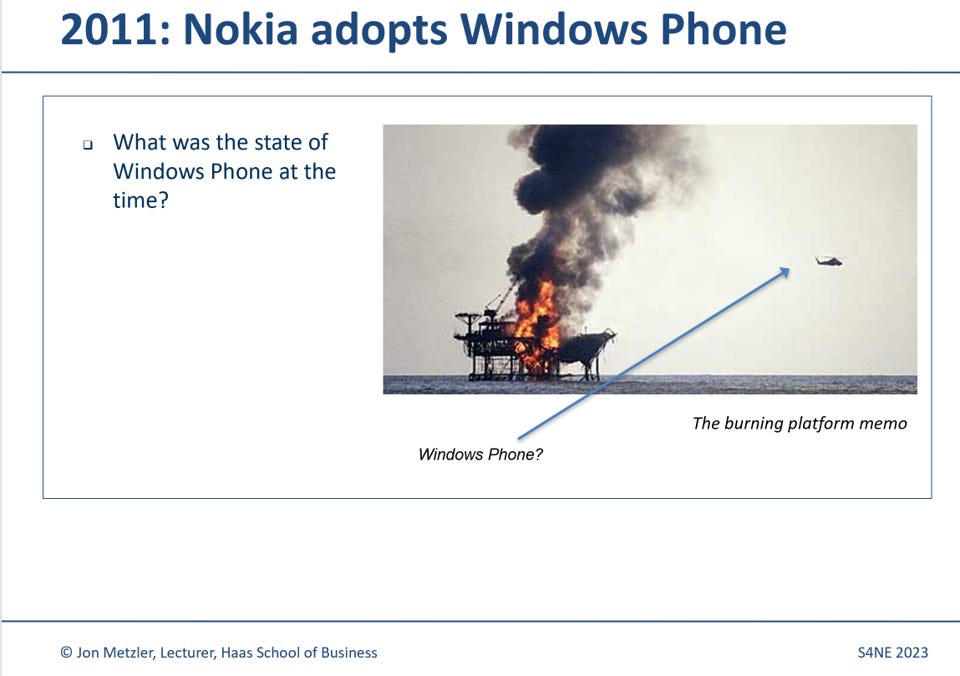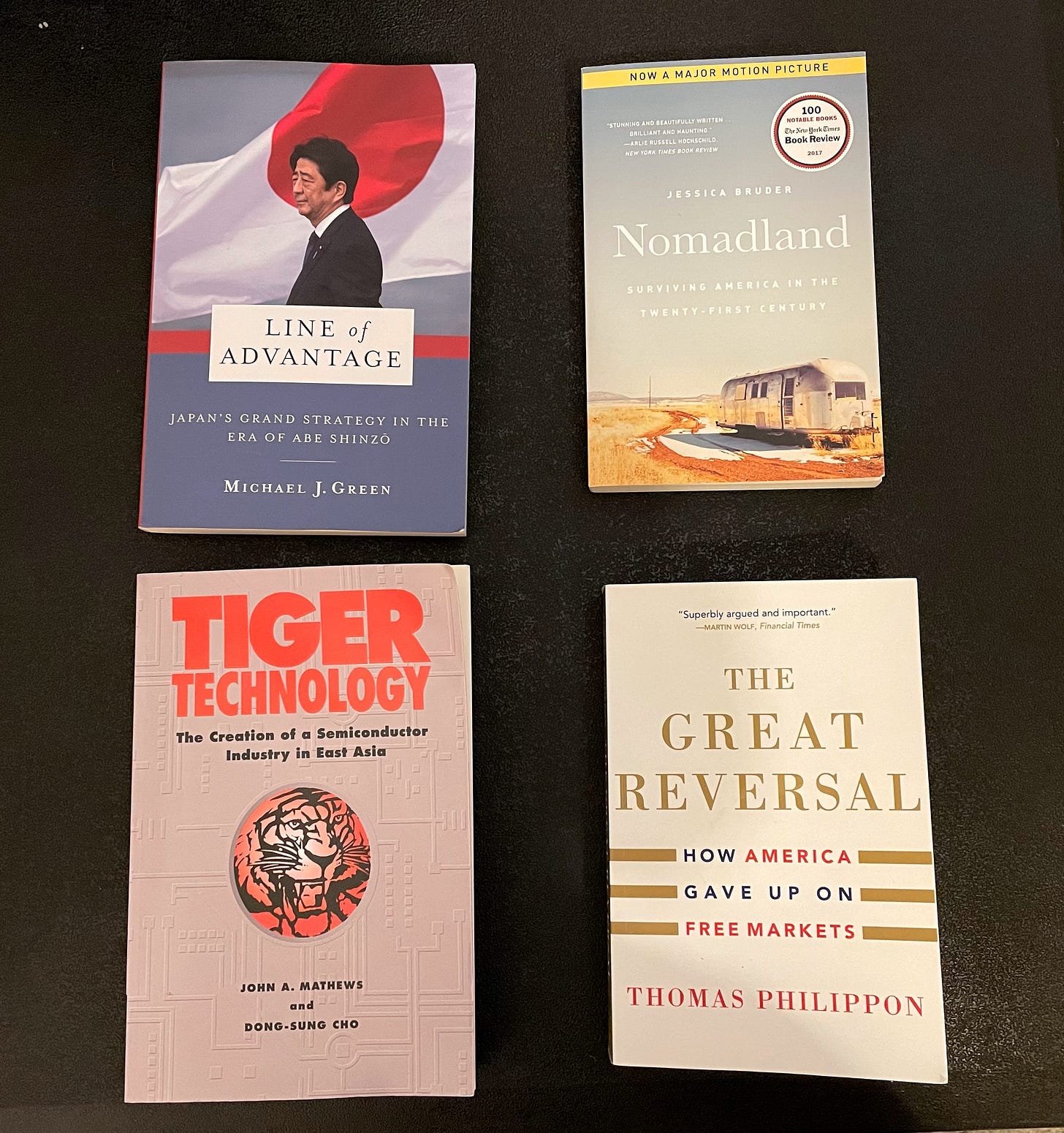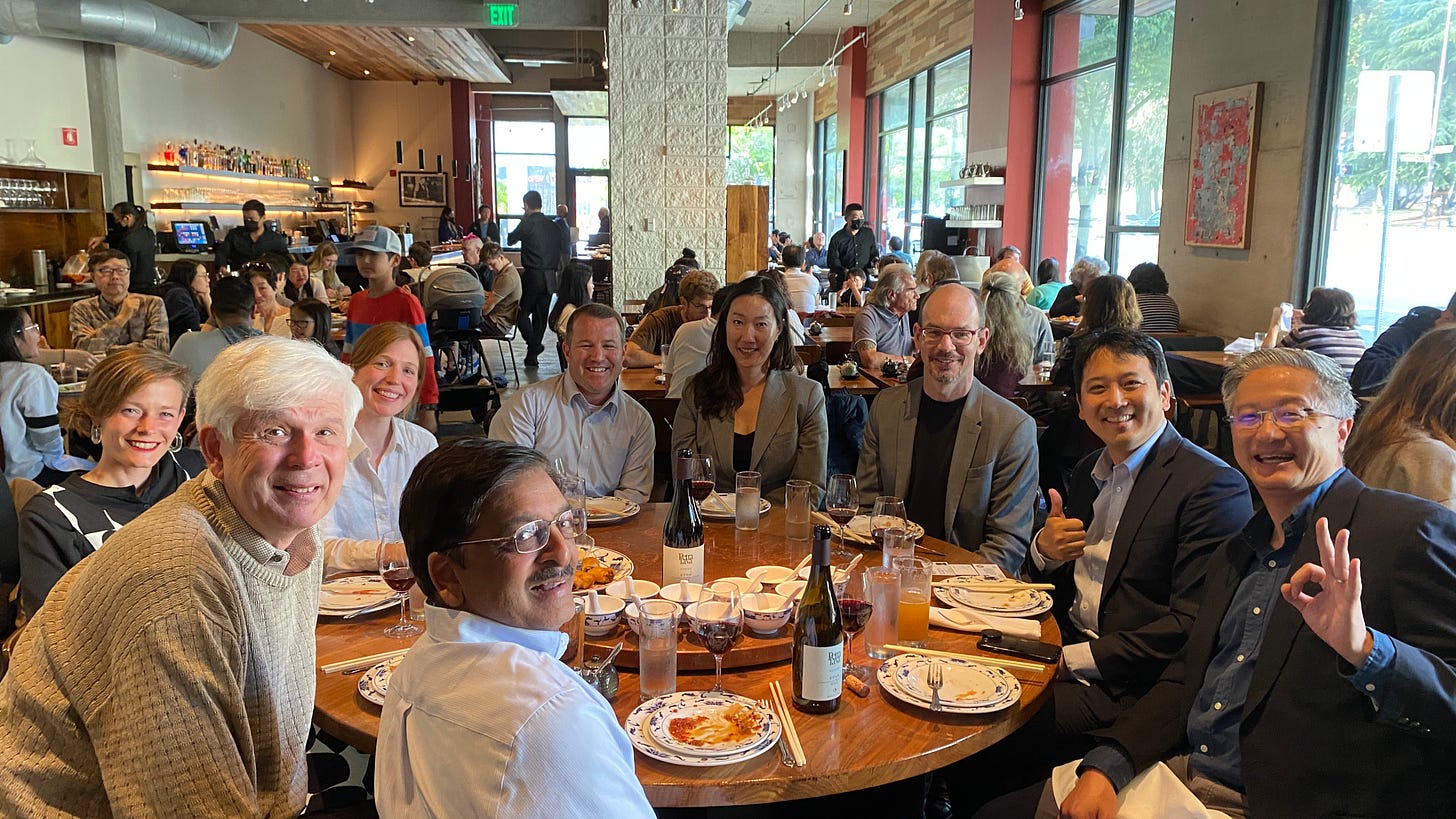Summer reading
and a word on Threads
Friends - thanks for the well-wishes after my last post. A warm welcome to new subscribers - thanks for joining! By way of introduction, in this newsletter I generally cover themes related to my instruction:
Strategy for the Networked Economy
Clusters: Locations, Ecosystems and Opportunity
Business in Japan
Competitive Strategy
With the occasional foray off topic thrown in. Thanks for being here! In terms of upcoming material, upcoming topics include:
Columbus, Ohio: one county in Ohio has been consistently up and to the right
More on Morro Bay and San Luis Obispo: can Morro Bay and the surrounding area become a “climate cluster”, to borrow a term from the Portland, Maine, team in my fall 2022 Clusters class (hat-tip to Drew Silverman and team)
Open RAN
Gen X Jazz (yes, this is a thing)
***
But first, Threads.
No, I haven’t joined. But I will note that Threads starts advantaged relative to pure new entrants (e.g. Mastodon) trying to solve the Cold Start problem. Piggybacking off of Instagram (a member of the >1B MAU club) solves the user liquidity (and acquisition cost) problem. And complicates any efforts by Twitter’s ad sales team.
I will keep an eye on the presence of complementors, as we call them in Strategy class - to the extent, say, Semiconductor Threads or Basketball Threads become a thing (as Semiconductor Twitter or Basketball Twitter have been), then I will probably join. Generally, I’m happy investing in the community here on Substack, which provides delight proportionate with time spent.
With Threads’ launch, I am reminded of two examples from recent tech history.
Nokia, Windows Phone, and the burning platform memo.
I cover this in Strategy for the Networked Economy as an exercise to show the importance of getting complementors (in the Windows Phone case, developers and telcos) on board.
In this case, of course, Twitter is the burning platform, and Meta is offering a more stable ride to disenchanted Twitter users. Remember when Twitter being unstable was, well, almost endearing?
Google launching Maps and Gmail
Both Google Maps and Gmail turned out to be transformative products relative to the state of the art at the time in their respective categories (remember Mapquest?). Gmail, paired with Android (which came along after Gmail), turned out to be a way to capture social identity, and today a Yahoo email address basically asserts generational affiliation.
But, for both Maps and Gmail, there was another form of success - siphoning away eligible time from incumbents, while also picking up new users as they first on-ramped. Thus, Threads can measure success directly, and indirectly (decreased DAUs /MAUs or time on Twitter, advertisers pulling out some amount of budget).
**
On to our post: summer reading! Generally, my book stack growth rate well exceeds my actual reading rate. With that said, some recent reads are pictured below.
First, Jessica Bruder’s Nomadland.
Why this book: over the winter I read Amazon Unbound and Christopher Mims’ wonderful Arriving Today. I read Nomadland in the spring. This explored the transient labor pool that works in places like Amazon fulfillment centers, or monitoring state park camp sites. A riveting, if tough read. (Mims, tech reporter with the WSJ, has a Substack which seems to be on hiatus.)
—
Next up: Michael Green’s Line of Advantage, on Japan’s geopolitical strategy under Abe Shinzo.
Why this book: I read this after Tobias Harris’ Iconoclast, which I read in 2022. Green’s work highlights just how consequential Abe’s second run as PM was geopolitically, during a tenure that straddled two US presidents (Obama and Trump) and a sea change in how the US engages with China and Asia. Even some of the language the US government now uses (e.g. “free and open Indo-Pacific”) in its advocacy can be credited to Abe.
—
Next up: Mathews and Cho, Tiger Technology, on the creation of semiconductor supply chains in Taiwan, Korea, Singapore, and Malaysia.
Why this book: this was written in the late 1990s, and was referred by
. It provides the origin story of semiconductor supply chains in each of Taiwan, Korea, Singapore and Malaysia, and also references prior development in Japan. Importantly, it provides insights on how each country facilitated dissemination of technology and capabilities: in the Taiwan case, through tech transfer and ITRI; in the Korea case, through tech transfer and investment in national champions. This sort of pattern analysis is, of course, newly insightful as the US attempts to implement industrial policy around semis.Tiger Technology ends while Singapore’s version of TSMC and UMC, Chartered Semiconductor, now part of Global Foundries, was a going, growing concern.
This logically tees up Henry Yeung’s Interconnected Worlds, on electronic production networks (Yeung’s term), which came out in 2022. Yeung visited Berkeley in May, and thus I finally got to reading Tiger Technology in preparation for his talk and book. Post-talk victuals are depicted below. Thanks to Vinod Aggarwal and Dylan Davis for the invite.
Which brings up: The Great Reversal: How America Gave Up on Free Markets, by Thomas Philippon.
Why this book: it was on recommendation of my faculty colleague Greg La Blanc and my father-in-law Nath Srivastava! This gave abundant evidence to support what you might have been feeling as a consumer - market consolidation (say, in passenger air travel or in telecom) is leading to increased pricing…and this represents a far cry from the US in, say, 2000.
As a Clusters instructor there was an added insight - on the employment intensity of the GAFAMs (Philippon’s term) versus, say, past equity market leaders such as AT&T or ExxonMobil. With the exception of Amazon, these are generally less labor-intensive firms, with Facebook being the least labor-dense. This is, in a way, a different take on the question of why semiconductor fabrication (itself a form of precision manufacturing) has been so economically multiplicative in various geographies over the years, from Austin to Boulder to Kyushu to Hsinchu. So in recruiting an anchor company to your town, what kind of company would you want to attract?
Philippon also gives welcome perspective as I get into research on Open RAN, which has, in limited deployments (basically, Rakuten Mobile) has shown it can enable MVNO pricing on the part of MNOs.
Added bonus: UC-Berkeley’s own Mathilde Bombardini and Francesco Trebbi get a lot of shout-outs for their research on the impact of lobbying on pricing.
**
Currently in progress: Boomtown Columbus, by Kevin Cox.
Next up: Spies, Lies and Algorithms, by Amy Zegart. Then, the aforementioned Interconnected Worlds.
Yours in beach reading,
Jon




